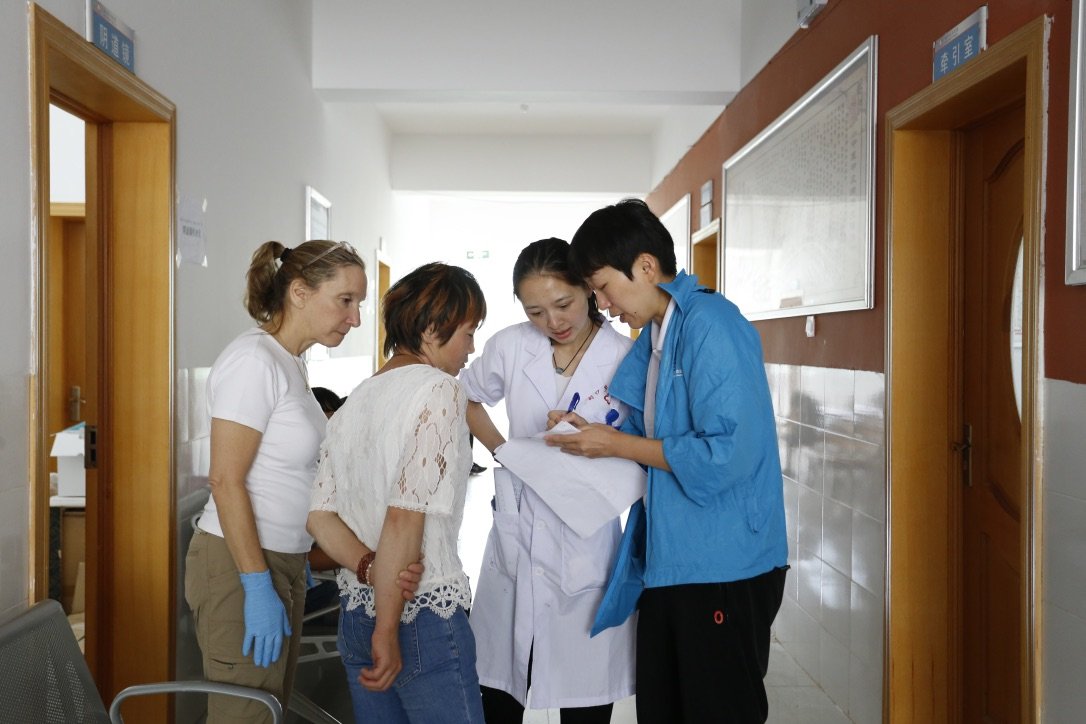100+
DIFFERENT TYPES OF HUMAN PAPILLOMA VIRUS
13 are cancer causing, known as the high risk type. Human Papilloma Virus (HPV) types 16 and 18 cause 70% of cervical cancers and precancerous cervical lesions. HPV can also cause cancers of the anus, vulva, vagina, penis, throat and tongue.
350,000
CASES OCCUR ANNUALLY AROUND THE WORLD
More than 270,000 women die from cervical cancer annually. It is the second most common cancer in women living in less developed regions and more than 85% of cervical cancer deaths occur in low and middle-income countries.
1/60
WOMEN WILL BE AFFECTED BY LICHEN SCLEROSUS
4-7% of women with lichen sclerosus will develop vulvar cancer unless treated. Only optimal treatment of lichen sclerosus with ultra-high potency corticosteroids has been shown to lower the risk of developing vulvar cancer.

Our mission is to fund research, contribute resources, and provide training for the screening and treatment of gynecologic cancers.
Our Goals
Focus on Prevention
The GCRF is focused on the development of cost-effective strategies based on new technologies to screen for cervical pre-cancers. There are hundreds of millions of women in resource poor countries who have never been screened. The goal is to detect and treat pre-cancerous conditions before they develop into cervical cancer.
Focus on Treatment
The GCRF is focused on developing efficacious, cost-effective, and safe long-term treatment strategies for both cervical and vulvar pre-cancerous conditions.
Focus on Research
The GCRF is currently partnering with the US National Cancer Institute (NCI) in its “Accelerated Control of Cervical Cancer" moonshot program which will use a combination of PCR HPV testing, advanced digital optics, and artificial intelligence to determine the optimal cervical cancer treatment algorithm for low resource countries. Additionally, the GCRF is partnering with the McCormick Genomic and Proteomic Center at George Washington University to determine the biologic pathways that lead to vulvar cancer.
Focus on Collaboration
In addition to its research collaborations, the GCRF team actively collaborates with other non-profit organizations to provide gynecologic cancer care in resource poor regions. We have worked with Amazon Promise (Peru), Sihanouk Hospital Center of Hope (Cambodia), Takeo Regional Hospital (Cambodia), NCHADS - The National Center for HIV/AIDS (Cambodia), Cure Cervical Cancer (Kenya), United Foundation for China’s Health (China), and Rays of Hope Jinja (Uganda).

Our strategy is to fund research and develop partnerships with government agencies, NGOs and foundations to implement our research and to develop gynecologic cancer screening programs
Why We Chose This Mission
Research into the causes and treatments of non-HPV related gynecologic pre-cancers and cancers is severely lacking.
Limited resources in many low income countries (as well as for marginalized women in middle or high income countries) severely limit access to gynecologic cancer screening services.
Inadequate training of healthcare providers limits early detection of gynecologic pre-cancers and cancers.









